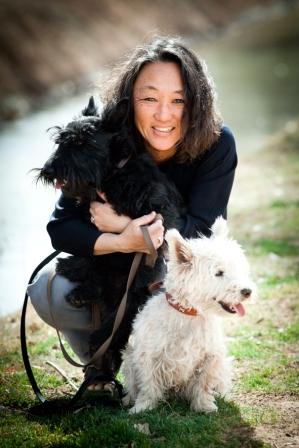
The One Animal That's Hard to Love
Animal-lovers will usually tell you that it all started with one animal. Falling in love with a particular dog, cat, horse, or goat created waves of sympathy that eventually spread to every other mammal, sometimes every living creature. It’s reached the point for me where I cannot even kill a damn bug.
We animal-lovers are not only sickened by reports of animal abuse, we cannot help but feel that such perpetrators are lacking in the most basic humanity, and thus deserve to be chained in the yard themselves, hit by a speeding car, or worse!
Indeed. The sympathy and compassion we feel for all furred and feathered creatures rarely extends to those animals closest to us, our fellow humans. Noticing this has puzzled me a lot lately.
Why is it that we so often hear of rich widows leaving huge sums to animal charities, and not a cent for starving orphans? My animal-loving friends say it’s because humans, unlike animals, have free will. We must bear some responsibility for our predicaments—either getting into them or out of them. Even children cannot escape this basic human condition, which some would call original sin, or karma.
And yet, animals have no problem loving us despite our bad choices—or so we believe. Ask animal-lovers why they love animals, and it is often because animals love unconditionally. They bear no prejudice; they live for the present; they are innocent of evil or wrongdoing.
We admire that innocence, even though it is basically amoral. A Mafia boss might order a cold-blooded murder, but his dog will greet him with the same boundless love as if he had just fed a thousand orphans. That’s why it doesn’t mean as much to be loved by your dog as by your kids. Yet we clearly hold in high regard this love that asks for nothing in return, regardless of circumstances, and bask in the sense that loving animals brings us closer to achieving it, too.
The New York Times ran a story July 29 about celebrities appearing on reality shows with their animals in a bid to repair their crude image, including Heidi Fleiss, Roseanne Barr, and Mike Tyson. Seeing the Hollywood Madam fuss over her 20 parrots, don’t you feel a little better about her? How bad can she be? We think more highly of other animal-lovers, as if they are fellow students in the school of learning to love unconditionally, even aggressive, scarred, old, unattractive animals.
That explains some of the appeal, I think, of The Bosque Beast. The stories here aren’t really about animals per se—the animals can’t be interviewed, and we know nothing about their reality. What touches us is the testimony of humans whose lives have been changed by loving animals.
And what is it about animals that has this impact on us? Maybe we see in our caring for them a mirror of our own goodness—the way we actually value and really wish for a little human love for our aggressive, scarred, old, unattractive selves.
Because “animal-friendly” culture isn’t really about the animals, when it comes right down to it. It isn’t even about loving animals. It’s about love.
Keiko Ohnuma
Editor & Publisher